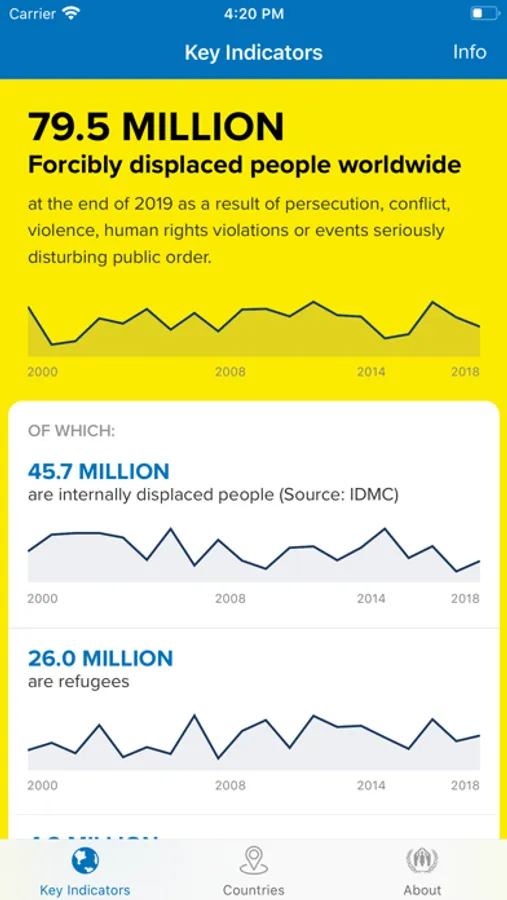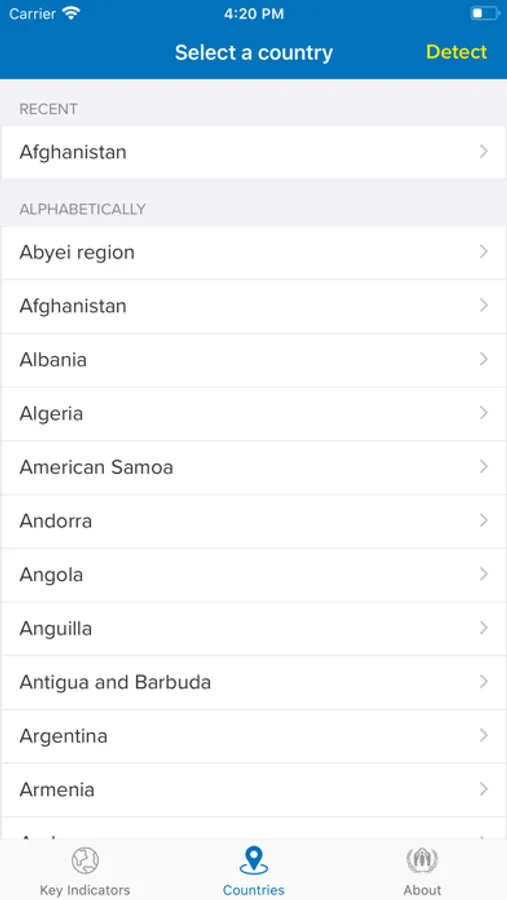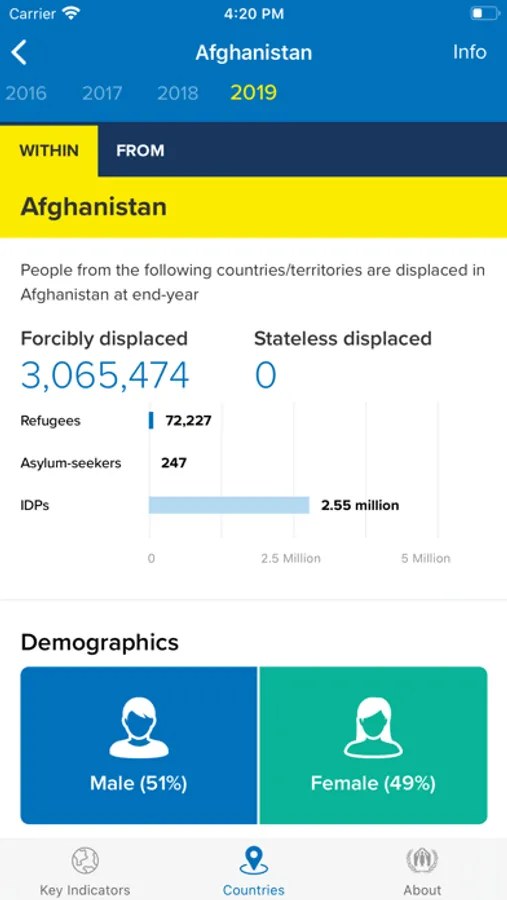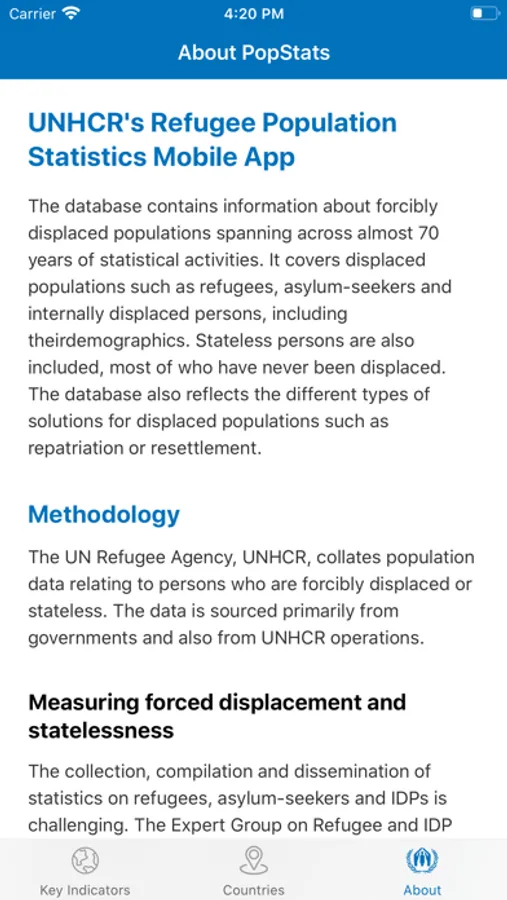AppRecs review analysis
AppRecs rating 4.0. Trustworthiness 65 out of 100. Review manipulation risk 22 out of 100. Based on a review sample analyzed.
★★★★☆
4.0
AppRecs Rating
Ratings breakdown
5 star
0%
4 star
0%
3 star
100%
2 star
0%
1 star
0%
What to know
✓
Low review manipulation risk
22% review manipulation risk
About Refugee Data
For more than seven decades, UNHCR, in collaboration with States and partners, has been collecting data on refugees, stateless people and others who have been forced to flee.
With the help of quality and timely data, we and our partners are able to make informed decisions, manage resources more effectively, inform communications and advocacy and demonstrate accountability to beneficiaries, partners and donors.
UNHCR currently generates and uses different types of data and statistics on refugees and other forced displacement, affected populations and stateless persons, such as information on:
The humanitarian situation and the wider environment (including social, economic, political, legal and policy);
The people affected by the situation (particularly their numbers, location and profile, including if they have any specific vulnerabilities and needs); and
Operational information on delivery of protection and assistance of a given response to the situation
With the help of quality and timely data, we and our partners are able to make informed decisions, manage resources more effectively, inform communications and advocacy and demonstrate accountability to beneficiaries, partners and donors.
UNHCR currently generates and uses different types of data and statistics on refugees and other forced displacement, affected populations and stateless persons, such as information on:
The humanitarian situation and the wider environment (including social, economic, political, legal and policy);
The people affected by the situation (particularly their numbers, location and profile, including if they have any specific vulnerabilities and needs); and
Operational information on delivery of protection and assistance of a given response to the situation



